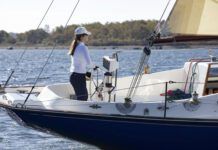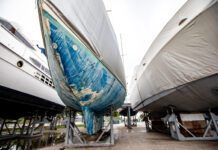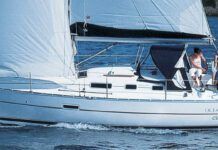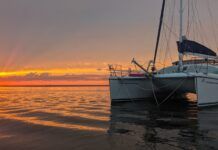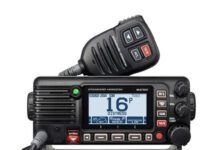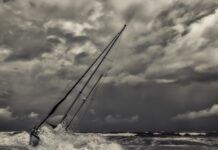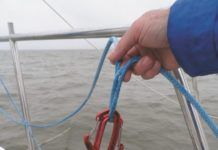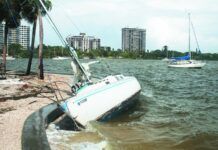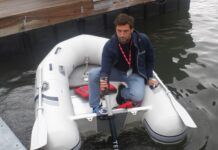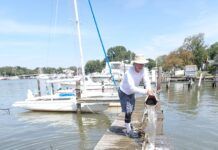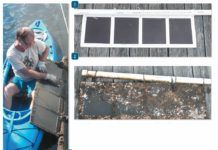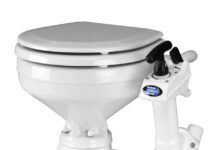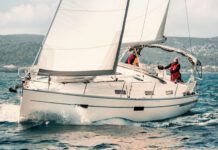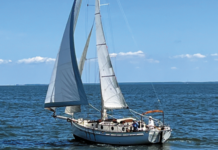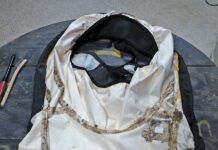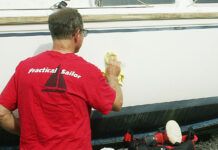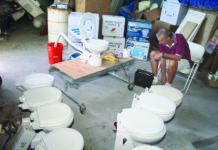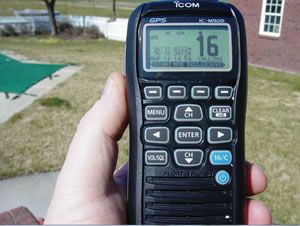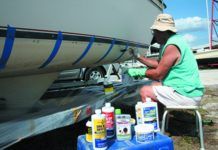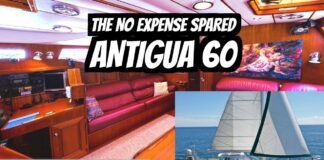Photos by Frank Lanier

In your Oct. 21, 2014 blog on calling mayday on an SSB, I wish you would have included what should be done to configure a Digital Selective Calling (DSC)-capable handheld VHF radio with a Maritime Mobile Service Identity (MMSI) number. If the radio is only used on one boat, thats pretty straightforward (see PS Mailport, October 2011 online), but what should one do if they own a DSC-capable radio but don’t own a boat (for instance, a personal radio used for chartering)? What if you have more than one boat, or if the handheld is used exclusively in the dinghy? I own a VHF DSC handheld, but Im a member of a sailing club so Im always on a different boat, and I regularly charter boats, too, including in international waters. Ive found no straightforward answer to how I should register my handheld VHF for an MMSI.
David Jade
Via email
The steps to obtain an MMSI for a DSC-capable VHF handheld used on several boats are much the same as getting one for a fixed VHF used on just one boat. If you plan to operate in U.S. waters, you can get an MMSI through the Federal Communications Commission (888/225-5322,www.fcc.gov) or another approved agency, such as Boat-US (800/563-1536,www.boatus.com/mmsi). Because your VHF handheld is used on multiple boats-and not associated with a specific boat, fixed VHF, or other electronics-list as much information as possible in the registrations notes section about the boats you will be using the VHF on. If you only use it on a dinghy, explain that and give the dinghy details. If you use it on multiple club boats, list them and give the contact info for the club. Also, we recommend updating the section for ships info (boat make, boat name, etc.) on the MMSI registration every time you actually change boats, especially if youre travelling far afield. Linking your VHF to the onboard GPS, when possible, is also imperative so that search-and-rescue (SAR) agencies will have your location in the event of an emergency.
According to BoatUSs Beth Leonard, if you have any plans to use the DSC-VHF handheld outside U.S. waters, you should get your MMSI through the Federal Communications Commission (FCC) rather than a third party like BoatUS. BoatUS MMSIs are specially coded for U.S. recreational vessels, and they are input into the U.S. Coast Guard SAR database. They are not entered into the international SAR database, so the information would not be available to international SAR responders. However, FCC-issued MMSIs are coded for international waters and are entered into the international SAR database.
So, if you might one day use your handheld VHF for distress alerting outside U.S. waters with the hopes of getting rescued, get your MMSI from the FCC. You also will need a ship-station license when visiting foreign ports, and the FCC will issue you one for about $215.
Recreational sailors not planning to ever use their VHF outside U.S. waters can get an MMSI for a handheld VHF that changes boats through the BoatUS website. As of presstime, this is a free service, however, BoatUS may institute a charge for it in the future.
Note that all DSC-capable radios limit the number of times you can program an MMSI into them; if you exceed the MMSI entry attempt limit, the radio will lock out future attempts, and youll have to send the unit to the manufacturer for reprogramming.
More information on MMSIs can be found at the Coast Guards Navigation Center website (www.navcen.uscg.gov) or the BoatUS website.
Look for our upcoming review of handheld, DSC-capable VHF radios, including the Icom M92D, Standard Horizon MHX851, and West Marine VHF 460.


